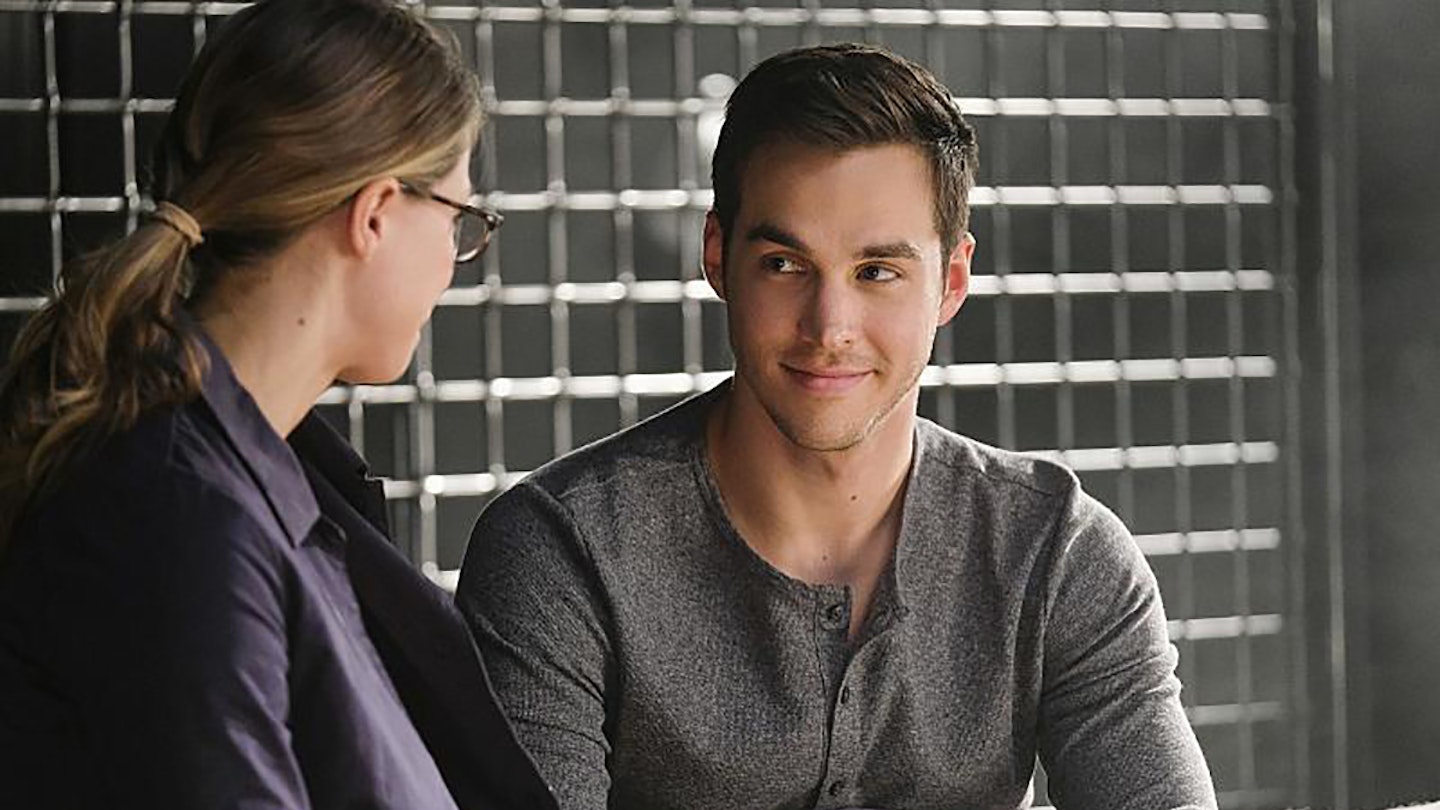Serial killer to serial partier is a disconcerting way to describe someone, yet appropriate for Chris Wood, or, more accurately, his acting career, which began as the former in an episode of Major Crimes and currently represents the latter as Mon-El on Supergirl. In between, the twenty-eight year old native of Dublin, Ohio has taken on the romantic lead in six episodes of the Sex In The City prequel series, The Carrie Diaries; the psychotic Kai Parker in season six of The Vampire Diaries; and experienced the true hero’s journey as police officer Jake Riley in Containment (which in this context feels like it should have the word “diaries” added to it).
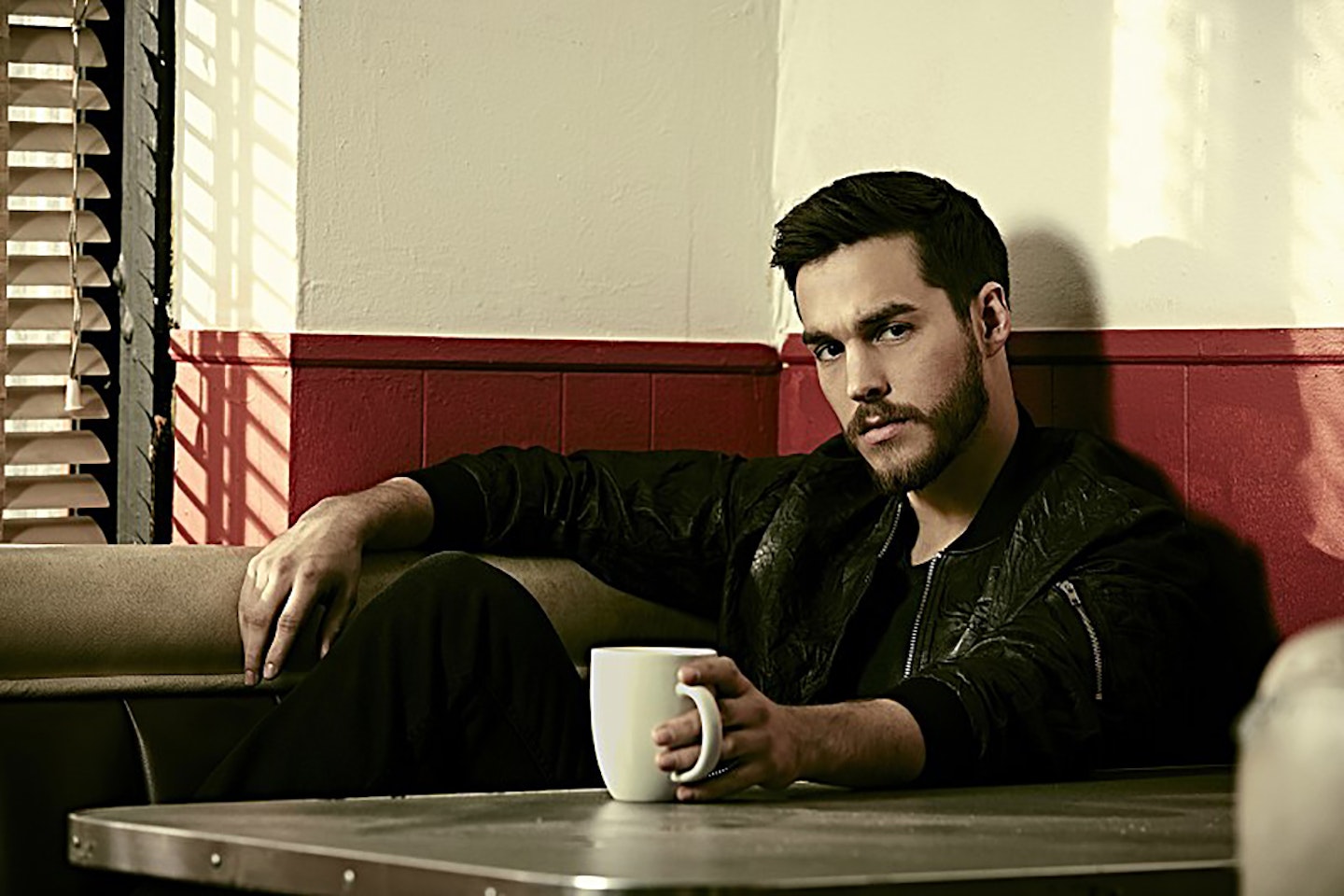
At the moment, though, it’s his Supergirl role that is garnering the most attention. Surviving member of Krypton’s neighboring planet, Daxam, Mon-El has come to Earth and, despite deeply-held resentment between their races, finds himself, after his powers begin to reveal themselves, being mentored by Supergirl. She’s attempting to convince him to use those powers for good, while Mon-El isn’t so sure it’s something he wants to do — though it’s hardly a spoiler to say that he’ll get there.
In the following exclusive interview, Wood traces his career as an actor, revealing someone who seems anxious to learn everything that he can to enhance him as a person while on the journey.
At what point in your life did you decide, “I am going to be an entertainer”?
I was one of those weirdos who, at six-years-old, was telling everybody that I wanted to be an actor. I saw my sister in a play and realized that I wanted to play make believe in front of people; I was always goofing around and putting on shows for my family. I sort of dabbled in some horrible child short films growing up; I would write these horrible scripts and shoot them with my friends and my sister. That was sort of the beginning of the end for me, because I loved it so much it was the only thing I wanted to do.
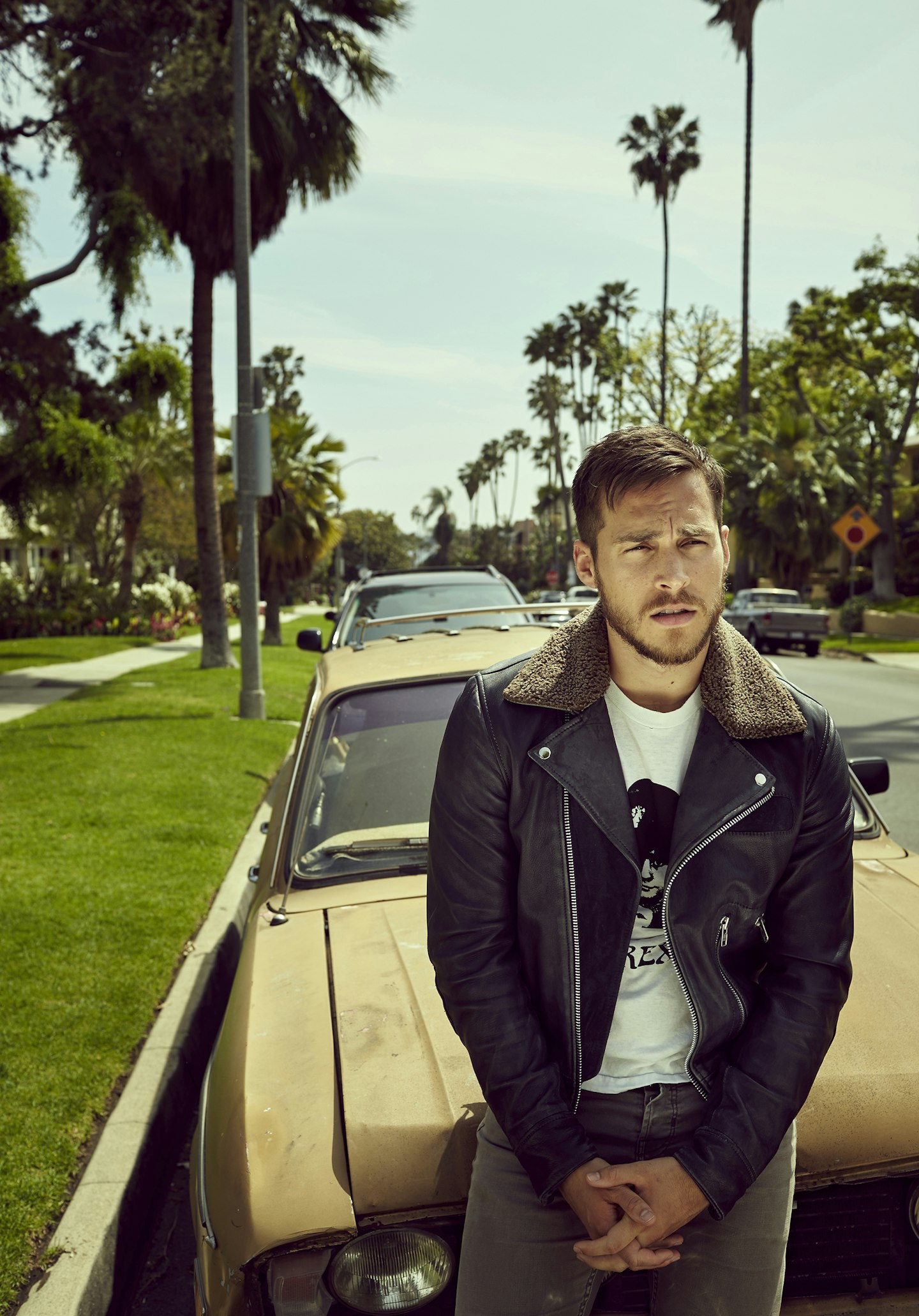
Photo by John Tsiavis
Even at that young an age?
Yeah, I started super early. But I didn't work professionally until my first break from college when I did some community theater for two hundred dollars a week. Then, after college I just did theater, exclusively stage. It wasn't until 2013 that I even started working in film. It was always something I wanted to do from six, but I didn't know how to get there other than working really hard and going to New York and doing theater like I saw on the bios of some of my favorite actors.
If you got the interest at six, how did you sustain it until you started doing it in college?
One of the nice things about acting is that even if you're doing it at a really crappy theater or you're starring in a horrible film that has no chance of doing anything positive for your career, you get to act. You get to play make believe and use those skills that you're trying to develop and improve on. Hopefully, everyone has the same feeling I do when they perform. I get such a thrill from getting to play make believe. My favorite place to be is trying to be somebody else. I think that I'm lucky in that, even at levels where I, by and large, wasn't making enough money to sustain my life, I worked as a male nanny, I waited tables and did what I had to, to keep doing theater and acting. I just loved it so much that it was never disheartening. I always knew that if I stayed with it and kept pursuing what I loved so much, I would get to a place where I could do that and just do that.
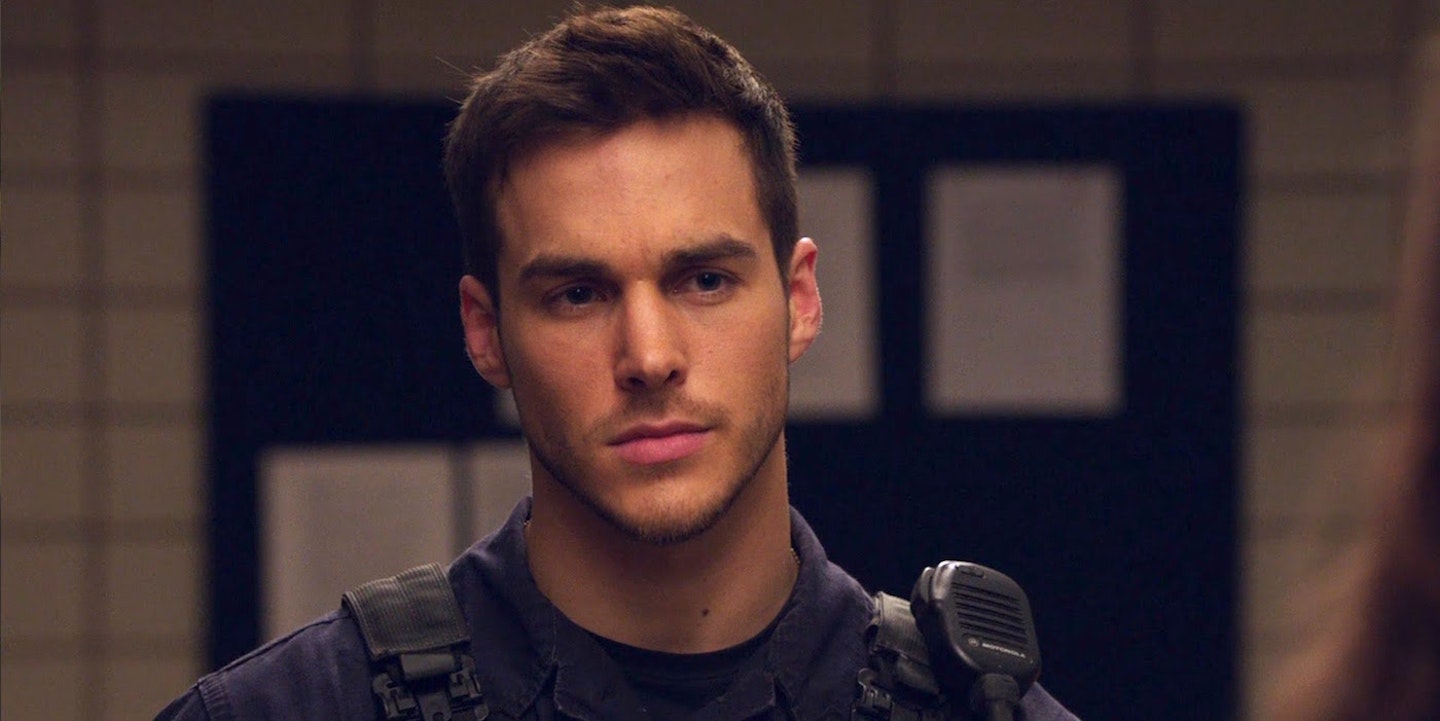
Some actors act to escape life. Were you looking to escape life or were you just looking to have more fun with it?
I never feel like I'm looking to get away from my own self. Not as much as I'm trying to get inside the mind of somebody else. That's one of the things I was into as a kid growing up, I was always asking questions. I was always reading and trying to learn new skills. If I wasn't making a movie, I was trying to master a new musical instrument or trying to teach myself how to shave with a straight razor. I had to find the weirdest things just to increase my understanding of other cultures or other arts or intellectual pursuits. I've just always sort of been mesmerized by our minds and how people think and how people react differently. Looking at old films when I was growing up, I saw the difference between someone who is just sort of walking through it and somebody who would really try to attain a different mental space from their own. I just thought that that was the coolest thing that you could do; to change the way you would react and change the goals that you would have in your life. The moral compass and the speed in which you speak or walk, or what have you. I've always found that part of the business to be endlessly captivating. That probably also keeps you in the game. There's a never-ending supply of characters you can try to nail down.
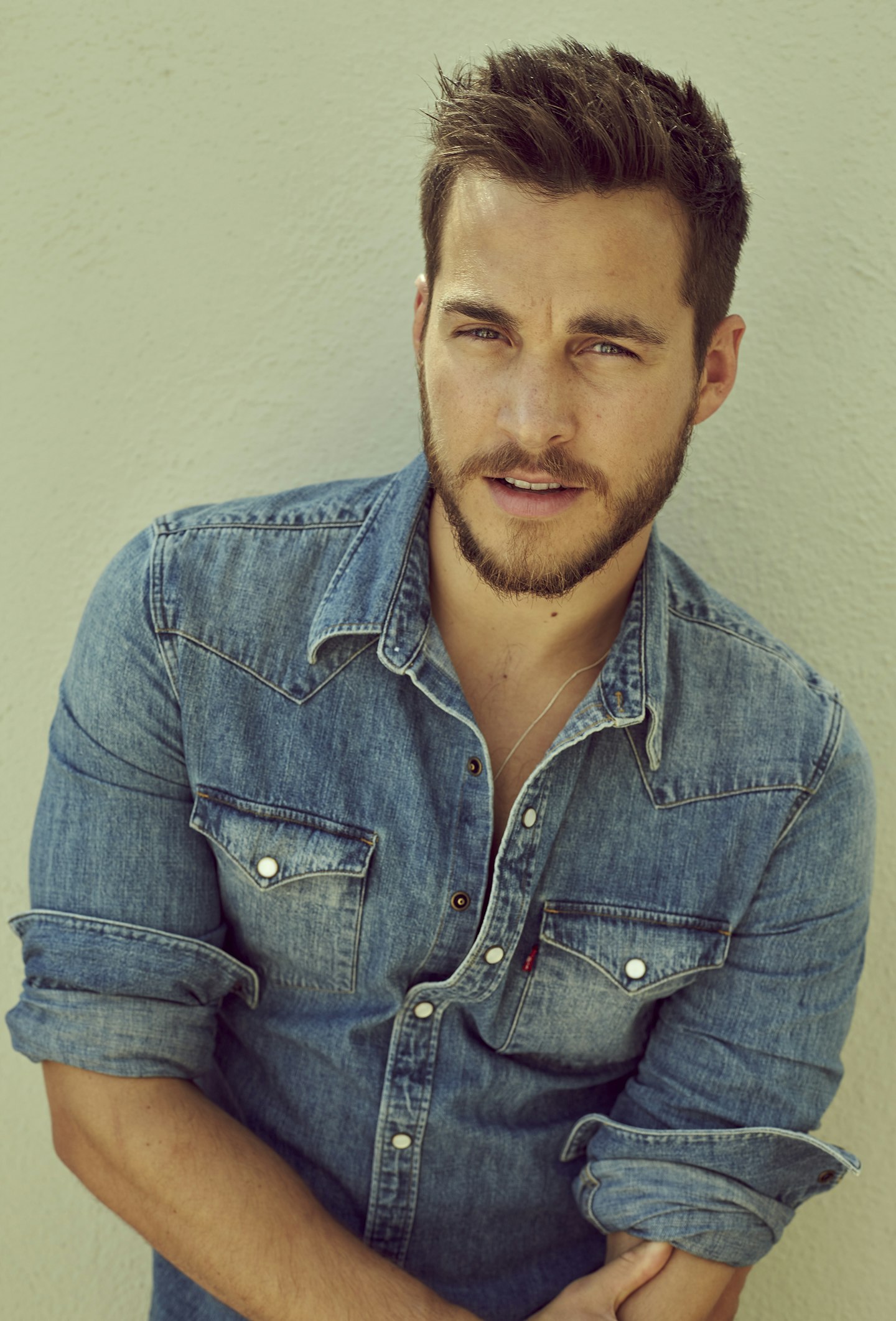
Photo by John Tsiavis
And in nailing down characters and playing them, especially when you're given the opportunity to play one on a recurring basis, do you find that those characters somehow illuminate a part of yourself that maybe you were not aware of before hand?
I find that every job I've done, no matter the size or the scale of it, every job teaches me in some way. You can't help but carry some weight of whatever role you've done with you. If it's a romcom, or something like Supergirl, or something that lives in that sort of world, it doesn't require as much of you to change, If that makes sense. I don't find myself walking around being affected by all the characters. Sometimes there are roles in plays or recurring characters that sort of stick with you a bit longer. I do find that it changes my outlook. The research is a big part of that, too. When I played a character who was an atheist and I got far into reading texts and trying to understand the roots of the disbelief, you can't help but be affected by what you're taking in. Knowledge is why people think the way they do. The deeper you get into the bones of a person, the more your own self is going to be changed. Your view of the world is going to change. It can be scary, but I try not to view it as a scary thing. I feel like it's a good thing, just broadening the spectrum of what you understand.
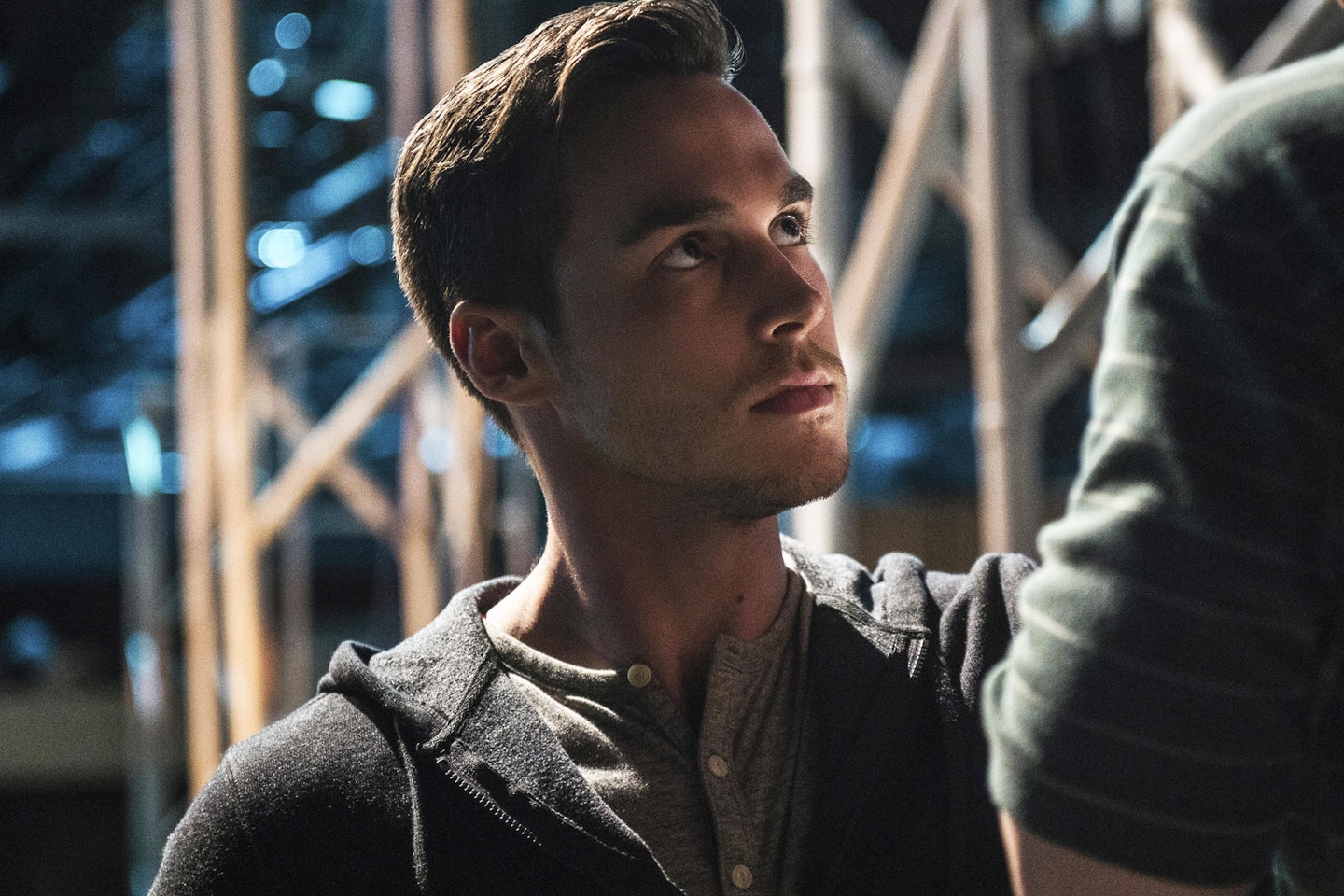
You said Mon-El, because it's a superhero, maybe doesn't require the same kind of understanding that, say, an atheist would?
Right, or a serial killer or a sociopath. There's a lot of different ways that the role can affect you. One of the reasons that shows like Supergirl and any comic that's been turned into a film or TV show are so successful is the escapism. People love to dive into a world that's not ours. As an actor, there are moments, obviously, within the show where there is weight and there's fictional circumstances. No matter how absurd or improbable, we try to make them real. That can still affect you. He's also a character that lives in the light, so he's reacting with humor and lightness to cover whatever he's actually feeling. I feel like that helps, also, to not be stuck in any sort of rut.
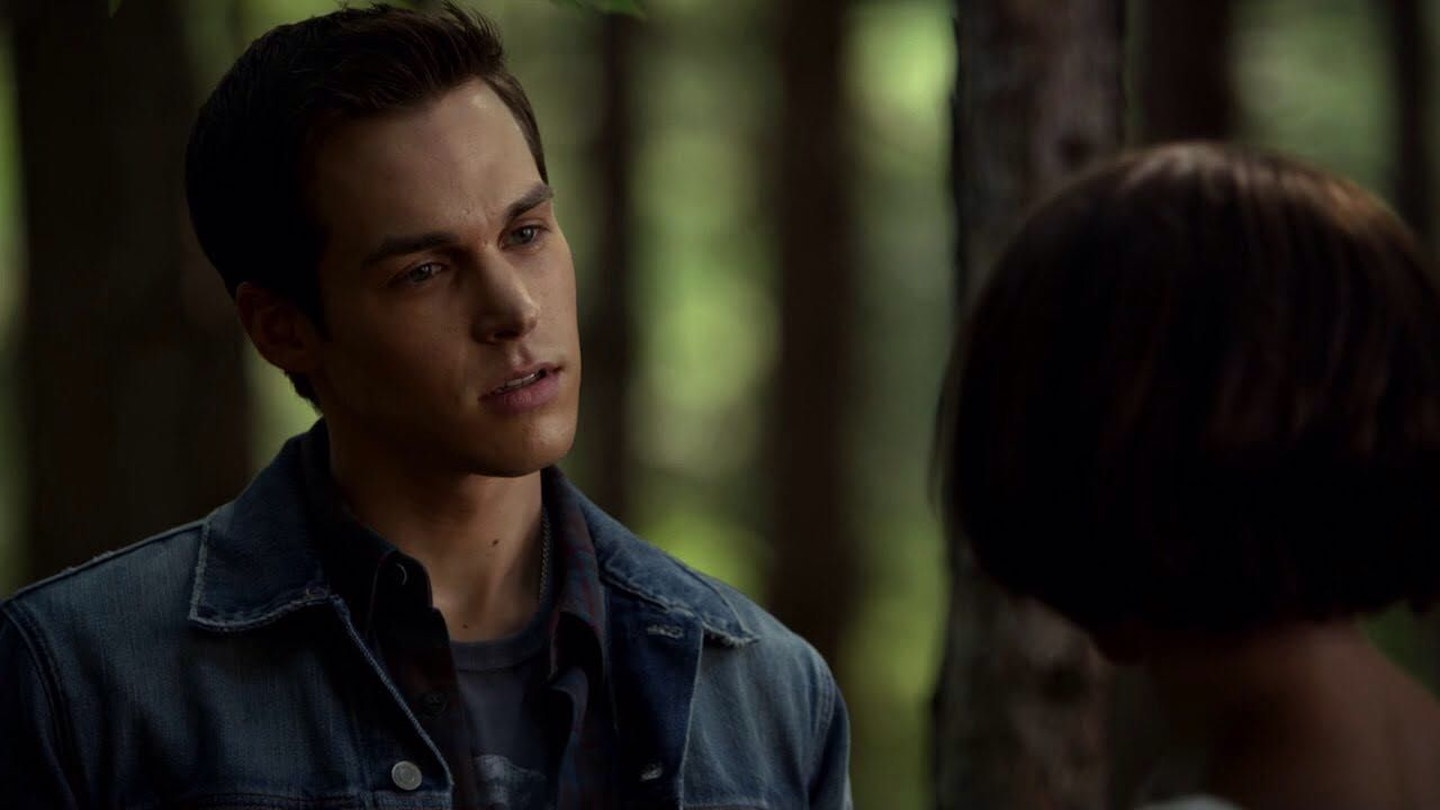
You graduated from college with a Bachelor’s Degree in Music Theater. Is music theater a big part of your background?
When I went to college, the reason I chose to study music theater instead of just acting was because I figured, why not? Why not do all of it? Acting has always been what I wanted to do. I've never considered myself a singer. My God, never in a million years a dancer, which are obviously two very important components of music theater. But I love music. I am sort of a nerd for classical and old jazz standards. I love the art of musical theater writing and performing. It's not what I gravitate towards in terms of what I want to do with myself; I gravitate towards straight plays and features. Even at a young age I would think, “Why wouldn't I study everything instead of just one thing?" I went to a school that wasn't a conservatory, because I didn't even want to limit myself in that way. I wanted to pursue a minor in world religion and take Shakespearean villain English classes. I wanted to learn about freedom of expression and just diversify my academics so I wasn't just looking at acting as its own little limited art form. I also feel like that's not how you learn. You learn by learning about other things you don't understand and you're not familiar with. That's what make actors great. At least ones that I love seem to be very worldly and into a lot of different pursuits. At the same time, it's hard when you graduate with six figures of debt. That situation in our country is tough. You look at the Music Theater Degree and you're like, "What have I done?"
“What am I doing with this thing?”
I don't even know where that thing is. I don't know where the paper is. I don't know what it's for. But I learned a lot and I definitely use a lot of skills from both my academics and my acting courses still to this day.
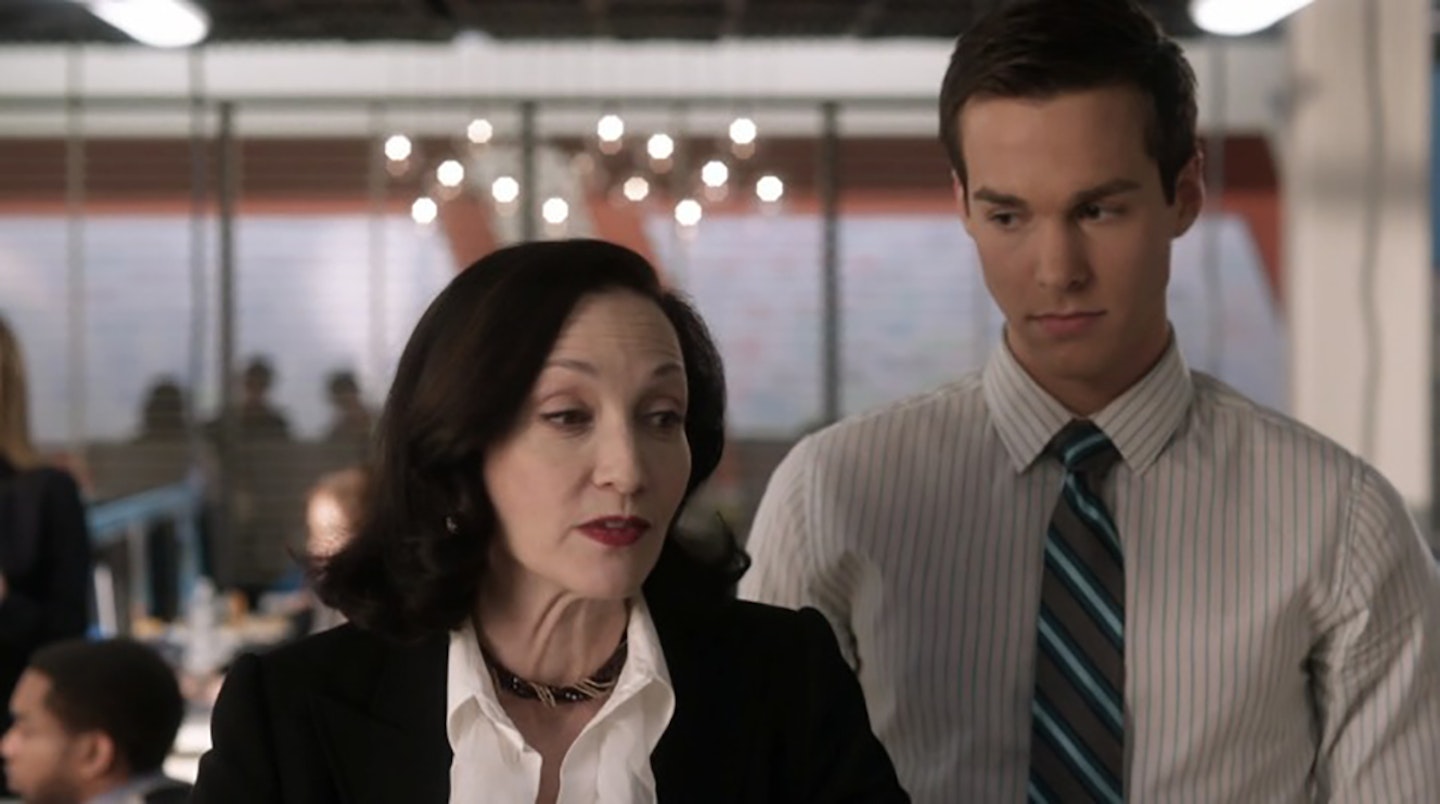
When you got in front of the cameras for the first time, it was for the 2013 pilot Browsers. What was that experience like?
That first day I was so, so nervous. My first scene, I didn't have any lines. I had a reaction and the camera had to sweep in. I had to greet these four people silently and gesture down the hall that we were walking. It was a stupid, very simple shot, but I just remember my heart was pounding out of my chest. Then, after the first take, it went away and it never came back. It was just nerves of the unfamiliar experience of having a lens on me. After that first take I was, like, "Oh, this is what I've been doing since I was eight-years-old with an 8mm camera in my backyard. We're just pretending. It's just there are one hundred people standing there watching me instead of just myself with a tripod." That fear went away very quickly once I started to think of the camera like an ally, sort of like a teammate telling the story. I still get nerves for certain scenes, or difficult moments, or something like that. The biggest thing people are scared of is that lens. It's just massive. It’s this eyeball into your soul. That can be scary.
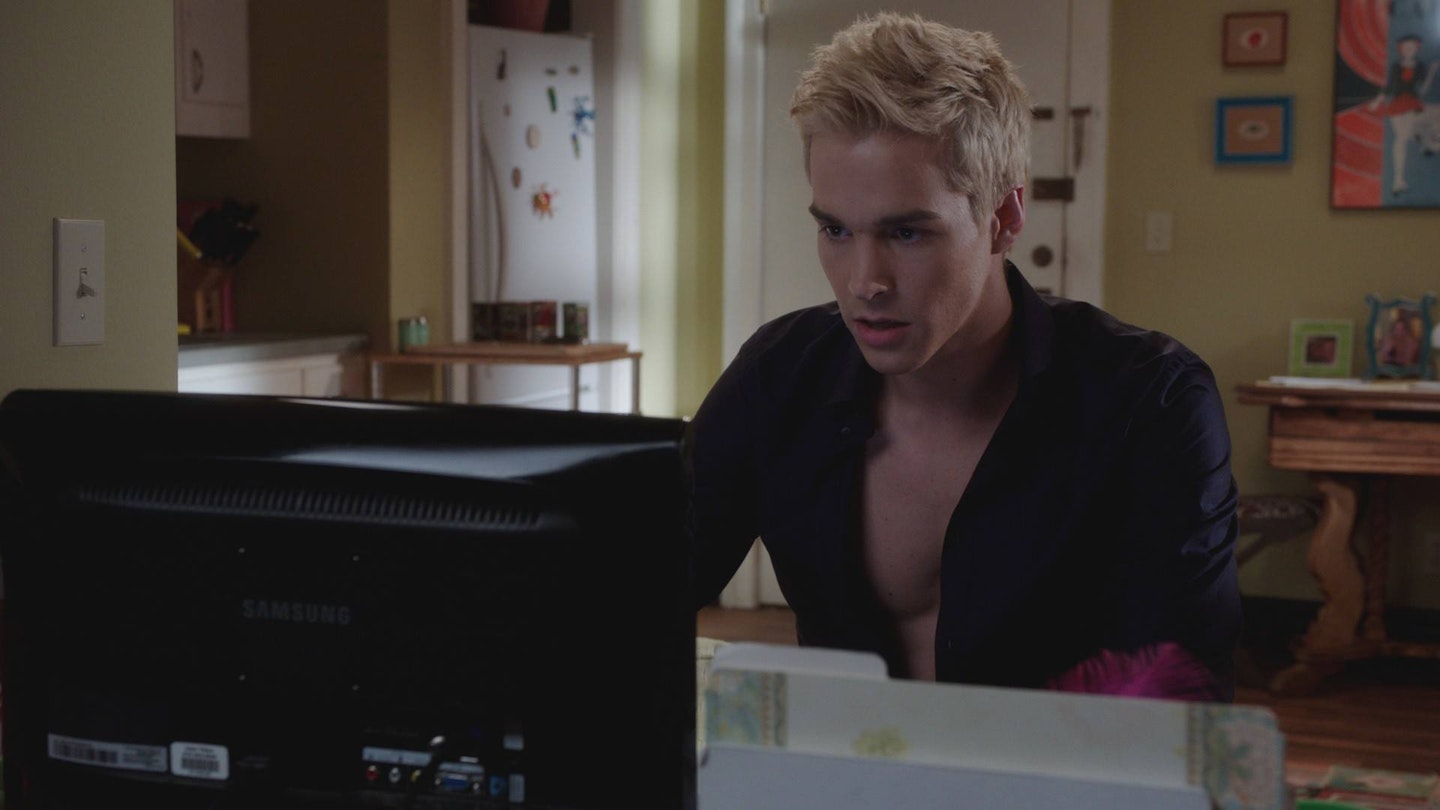
Your first big credit was six episodes of The Carrie Dairies, the prequel to Sex In The City.
I had actually done an episode of Major Crimes right before that. It was sort of this weird mold-breaking episode for that series where instead of the killer just sort of brought in the room and being interrogated and that was the purpose, almost half the episode is from the viewpoint of the serial killer. I got to play that character. It was the first time I had had a role since theater that had a through line that I could sort of sink myself into and try to get a little weird about it. Really throw myself at it. It was an episode of television that I made everything to me. It was the first chance that I was getting to do what I felt like I did on the stage in front of a camera. I had to bleach my hair platinum blonde and take this weird identity of this guy who was losing his mind. That was a Warner Bros project, and that's what led to The Carrie Diaries. Major Crimes was a massive moment in my career.
Was The Carrie Diaries a positive experience?
Yeah, that show was very sweet. I played a playwright who was a little bit arrogant, successful for his age kind of guy. He was just sort of the closest, in terms of physicality and look, to me in my real life that I had been on camera. On stage, I was so used to playing forty-year-old men, or playing John Wilkes Booth, and trying to do the accents and physicalizations, and using all of these different things that you can do on stage to change who you are. On camera, you sort of just are. When people are able to transform into somebody so completely different and be believable in every moment; that's the thing we're all striving to do. It's hard to not be caught by the camera faking it. That's why sometimes I find that prosthetics or someone doing an accent, you sort of see through it. You can tell that that's this actor pretending to be this as opposed to seeing a human being. This role didn't require that much change in me. It was just kind of me with a different set of life circumstances and a different viewpoint. That was a nice George Clooney moment, where I was like, "Oh, I can sort of be me." Experience this character's life, just not change anything about myself, just be me.
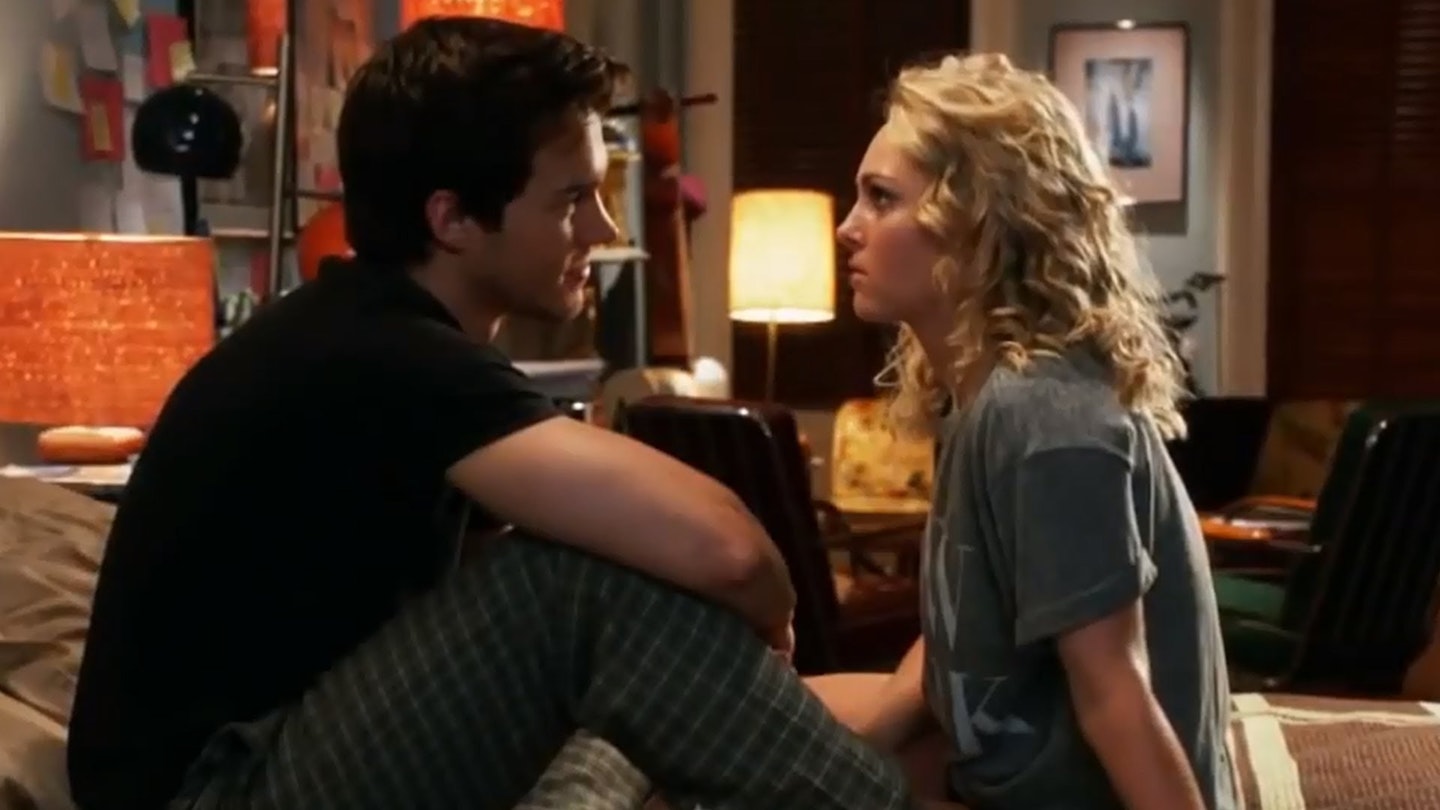
Pretty freeing, it would seem.
It is freeing! Also, I find that those are the hardest roles to do. As a kid, I started out wanting to be a Jedi Knight or James Bond; you try to be all these characters that are so far from what you are, that as soon as someone says just stand there and talk to a girl and ask her to go on a date, I'm, like, "Meh." But what was important about that part was setting into being me and not feeling like I needed to push myself like I did on stage to absorb the perspective of someone thirty years older than me. Or from a different era.
That show, of course, led to The Vampire Diaries’ sixth season, where you played Kai Parker, a considerably darker character.
That was the opposite end of the spectrum from just being me. I was playing six years younger than I had on Carrie Diaries, so I tried to thin out and got almost lanky. Then you're a sociopath, a psychopath, and a killer. Then, there's all the fantasy elements on top of it, like being a male witch. So you have to find that head space for a balance on television on a show like The Vampire Diaries that has this blend of humor and darkness. And where your fans love the bad guys, even though they're doing horrible things. It's a weird balance to find as an actor. Obviously, it starts with trying to pursue something real. I pulled up [serial killer] Ted Bundy, he was the biggest source for the sociopathic side, because he was so damn charming and you would just believe what he was saying. Then one little instant in the interview, you can see his eyes flip: “That guy, he's a killer.” You can see him lose it for moments, but then he would come back and be so easy to speak to.
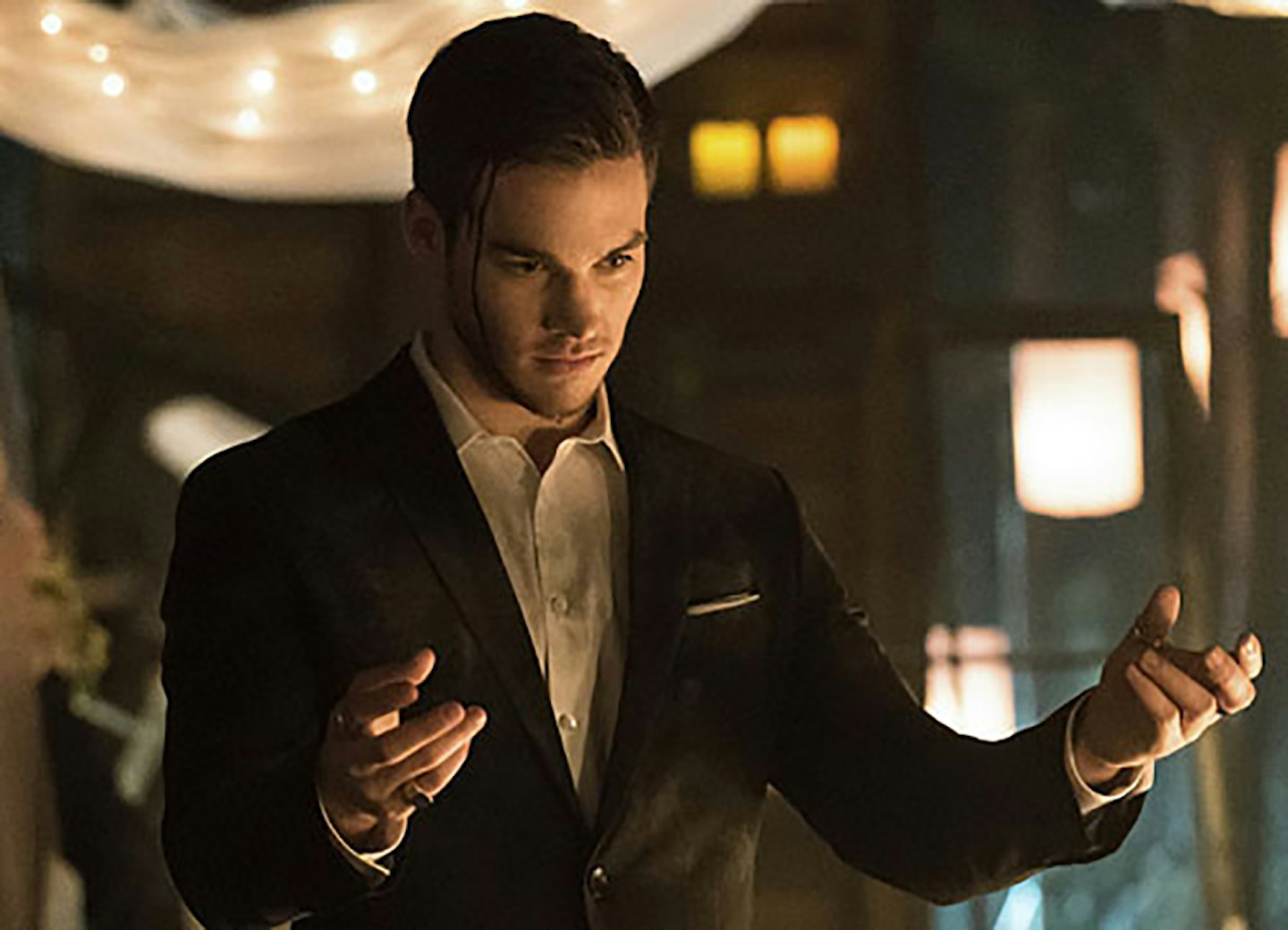
That was the serious side of my angle. The other part of it is this guy's got to be quippy, awkward, and sort of annoying and funny. How do you channel a dark killer into something that's also light and entertaining? That was the challenge in that role. I feel like I got to flex a little bit more in that. I got to use some of the skills that I had been using on the stage for so long. I got to try different tactics of getting that story across. I got to be a ridiculously dark comic character. It's a fun opportunity.
Is there a chance for a character like that to evolve over the course of a season, or is it locked in place on who he is?
I think that character definitely evolved as the writers, as with every job, and me actually being the character, got further and further into it. At first, it's each writer's different perspective of who this guy is going to be. Then they cast an actor, and there's already three or four episodes of writing. Then they see the actor saying these words. They see the moments that work the way the actor speaks. Then, they start writing with the actor in mind and something changes and the character clicks.
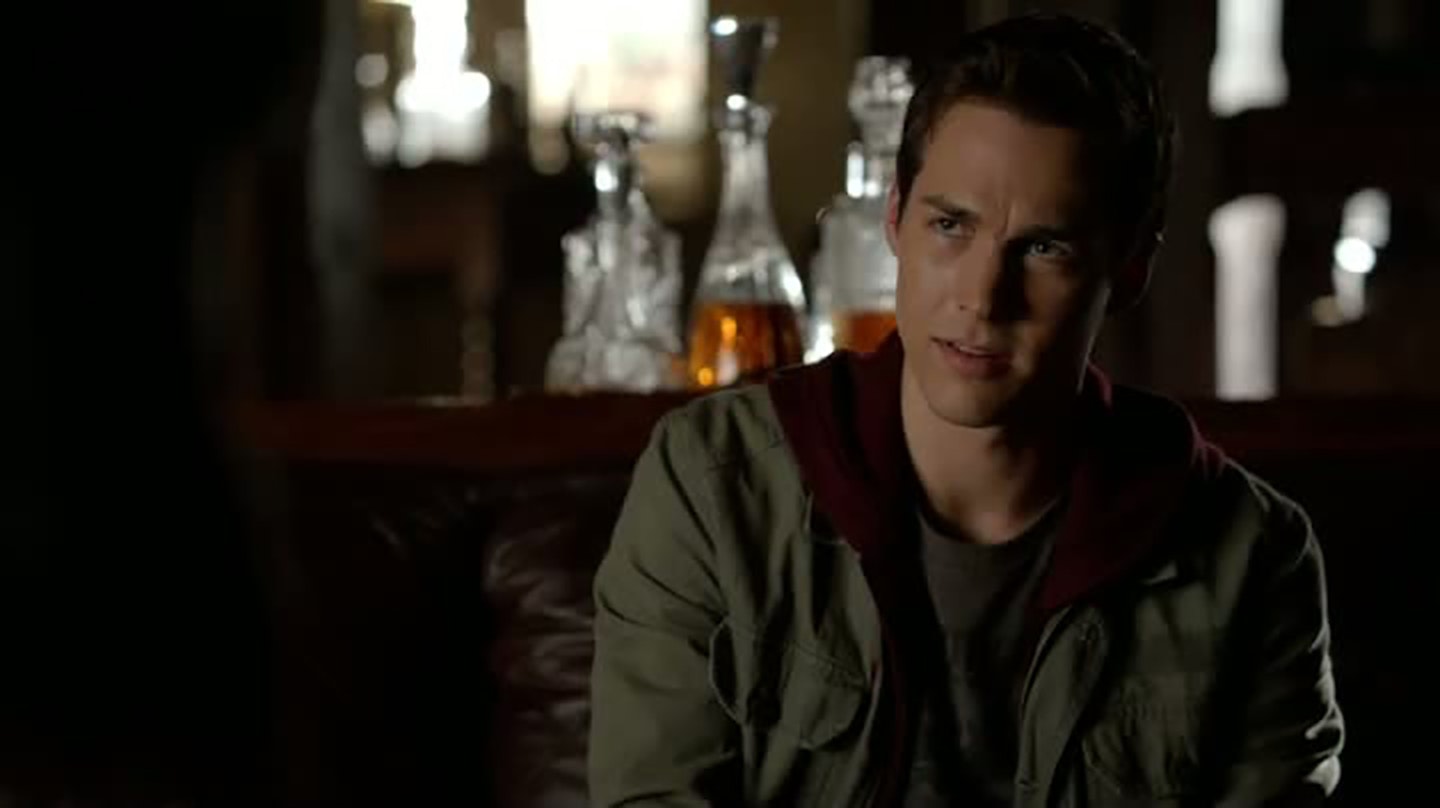
Were you disappointed that it only went for that one season, or did you shift over to Containment and it really wasn't a problem?
That was always the plan, though there were murmurs of, “What if we did another spin-off? What if we gave this character a different arc?” But there were some things so nice about having a character that wasn't able to be redeemed. It was something the show didn't do very often, was take a favorite evil character and not make them turn good. That was one thing that I really respected about the process. Julie Plec, the producer, and my friend now, was super into the idea of having him just stay in that very despicable, dark place. He's just not a good guy. We had to just be okay with that. That's one of the fun parts of the role, I think, too. It would have hurt his story if he were to stick around and have this redemption story. Also, I took a couple of episodes off to go back to LA. for a pilot season. They cleared me so I could go do that, and Containment was my favorite script that I read that season. It was a first audition and within a week I had it. When you get the job that you wanted, that's everything.
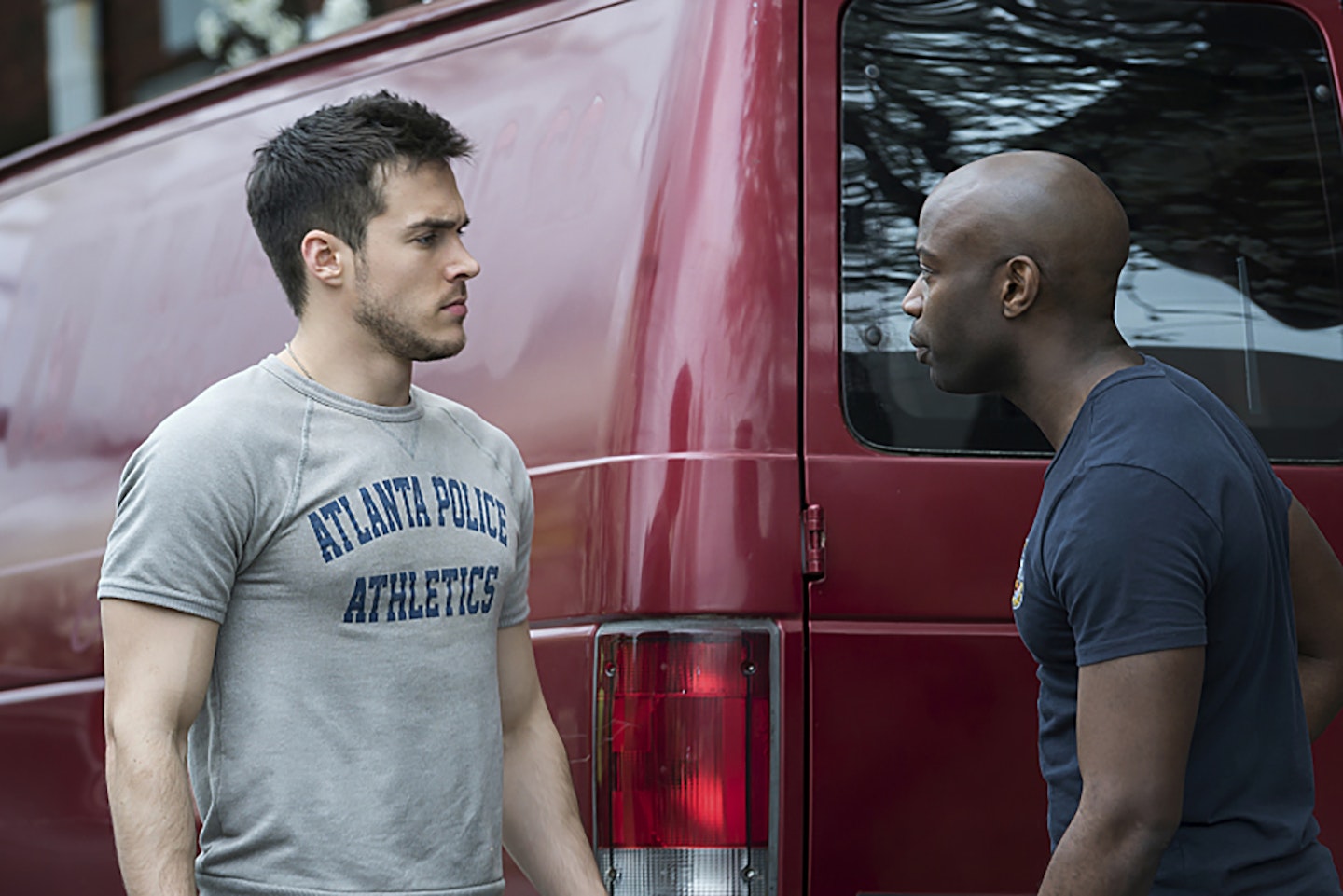
What was the appeal to you of that show?
I definitely was interested in doing something that was more grown up after my previous couple of arcs. I was reading all these scripts, and the problem with my look and my age is that, outside of the CW especially, there's not much where that's the centerpiece of the story. I'm twenty-eight, but on camera I usually read a little bit younger. I fluctuate, depending on how much facial hair I have. I read this script, and the character was written at thirty-two. He was a police officer and the circumstances of getting trapped in a quarantine zone and having to fight to stay alive, that all just sucked me right in. I realized what I could do as an actor with that. How I could try and sink my teeth into that reality and live in sort of a dark, real place. I love comedy, but my favorite thing is to try to get my head space into something that I've never experience, so I gravitate towards dark. I want to put myself in places where, hopefully, if I'm lucky, I can have a real, genuine reaction emotionally as an artist and that the camera is shooting when that happens. That show, I just read the script and I was, like, "This is a setup for a story that I feel like is going to give me that opportunity." I talked to Julie Plec [also a producer on Containment] and asked her about it. She was, like, "Yes, that story is the reason why I wanted to do the show."
Do you think the subject matter was too grim to connect with people, as it only went thirteen episodes?
It was a show that, probably in it's best form, would have just been limited. I think even eight would have been ideal, or two seasons of eight. It is a, for lack of better term — I'm going to have to use a pun here — very contained story. It doesn't need six seasons to tell that story. The shortcoming of the show, which is hard now, is that we didn't resolve it, because even though it was intended to be one season, there were murmurs about them loving it so much they wanted to do it again. It was left open-ended, which is the only part that sort of hurts in that the story wasn't finished. But as an actor, I haven't felt more fulfilled in front of the camera than on that show.
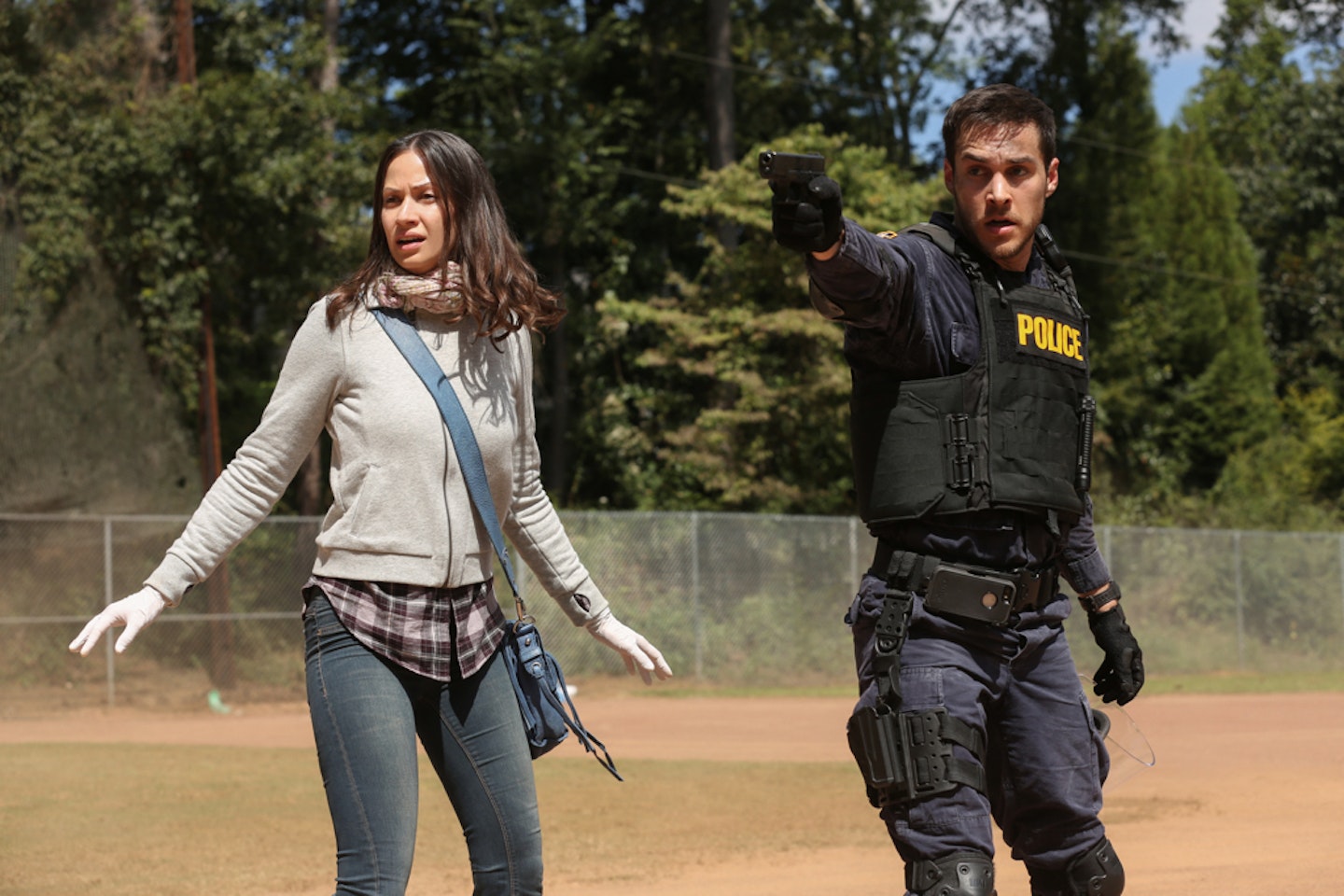
Is there anything you learned from this guy, Jake?
Jake kind of goes through everything in the course of that season. He falls in love. He experiences the greatest form of loss one can experience. He witnesses death every single day. He's put in charge of cremating the bodies and storing the remains. Also, trying to enforce law inside this hell hole that is the quarantine zone. Whether or not it translates in the final episode product that everyone ends up watching, that's one kind of cool thing as an actor. You can watch something and it's never going to be as good as the experience. I've never seen something and been like, "Wow, that's better than what I felt like it was."
What is the contrast between something as heavy as Containment to something as, relatively speaking, light as Supergirl, where you’re playing Mon-El?
I left Containment for the first time understanding the exhaustion some people have after they’ve done a really demanding emotional and physical project. I wanted a break, to be honest with you, and I needed to recover. And then to not see the show come to a place where it was received with the enthusiasm that I had for my experience working on it… it’s not like it created a disillusion in me, but it definitely created a moment where I was okay with seeking something that was going to be a little bit lighter.
When they sold me on Supergirl, I went and sat down with Andrew Kreisberg and Greg Berlanti, and they described the character to me. Greg Berlanti used a couple of music theater references to kind of explain who the character was. They threw up Chris Pratt in Guardians of the Galaxy as a reference point. You know, a romantic sort of quietly good soul under this more frat boy exterior. I was, like, "You know, it's going to give me an opportunity to not torture myself for twenty-two episodes, nine months out of the year." Also, have moments where I can access that, because it's going to dip into more serious territories. Then, it's going to go back to lightness. This character is, by and large, kind of a goofy, funny guy who's trying to adjust to a new planet. The pitch was timed appropriately where I was, like, "Yeah, you know, I could go do that. I could go hang out and be that guy for a second."
As strange as it sounds, Mon-El is kind of like Clark Kent becoming a superhero as opposed to already being Superman.
That's exactly right. I think that was why they wanted this character in the show. Part of the nice contrast is having Superman there this season until right when Mon-El wakes up. You almost see the finest product of what he could be, then he's there and he's such a mess. At least for me, from my perspective, and I'm obviously biased because you don't play any character and think that your character is bad. You don't play a bad guy and sit there in the character and be, like, "I'm a bad guy." You justify the perspective.
I view him as a good guy. He's not trying to cause any harm when he doesn't listen or when he screws things up. He's just overwhelmed by the world and these powers. It's something that they didn't get to do with Kara's story in the first season, because in the pilot we have to quickly go from her having these powers, told to not use them, to being a full-fledged hero in a suit. Otherwise, people will watch the pilot and not know what the show is. So she has to be in the suit by mid point, you know? So, we used that whole hero's journey of working through the kinks, punching too hard, and going the wrong direction. Working on the flying abilities. We missed all of that because of how the show had to be set up. I think that's why they wanted this character, to get to tell her story, or even Clark Kent's type of story, from the beginning in a way that hasn't been told. He works as a nice foil next to Supergirl, because he's just in a different place heading in the same trajectory.
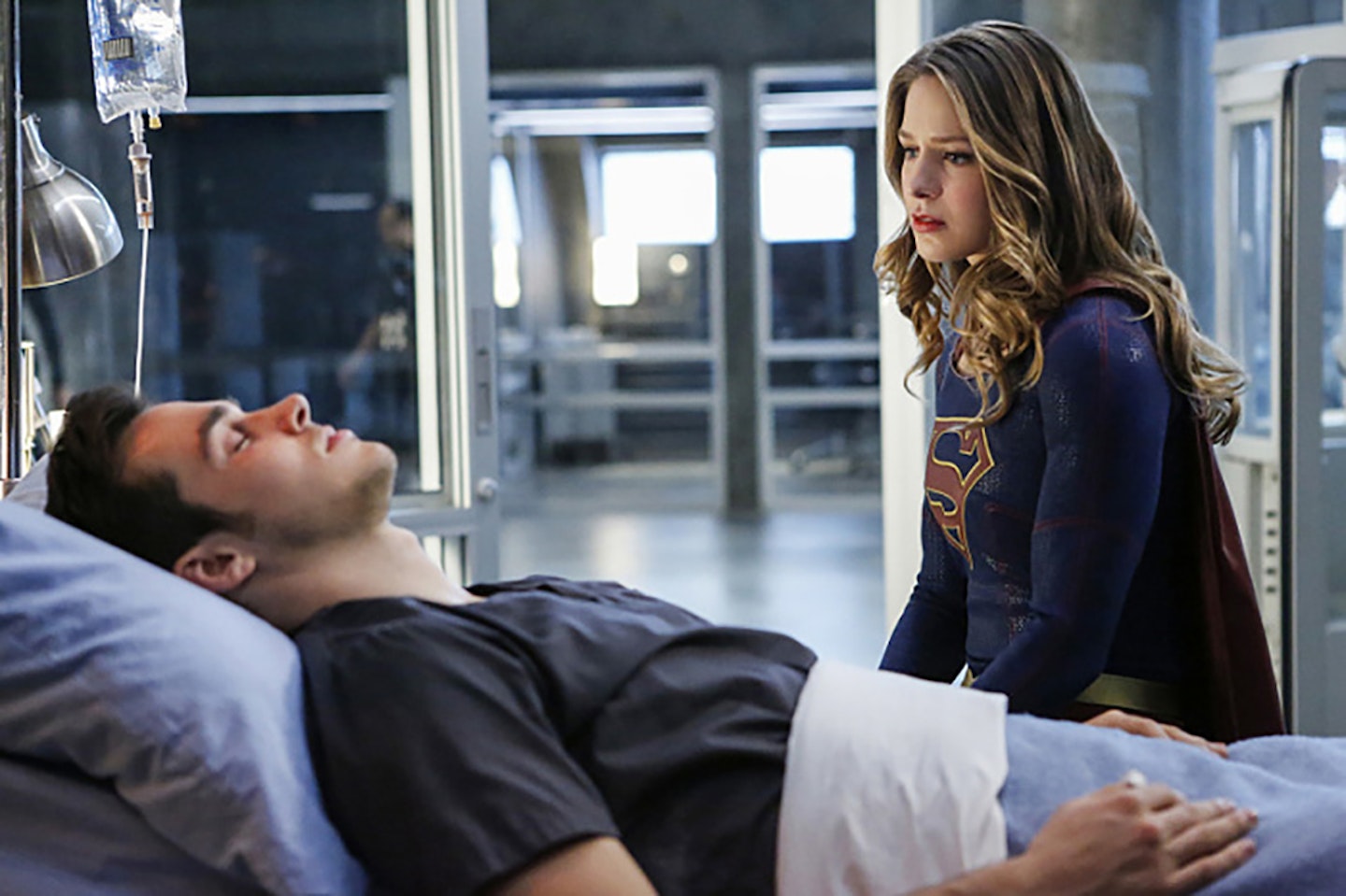
On screen you and Melissa Benoist seem to have a good rapport with each other. Is that something you feel on set?
Oh, yeah, absolutely. It makes the job easy when the people you're working with are, in real life, of the same speed and have the same sense of humor. And view the work in the same both serious and playful way, because we can't take our work too seriously. I mean, we're running around in spandex. We have to understand that what we're doing is, by and large, a very silly thing, but also note that there's a heartened importance to that. That makes the work easy.
It’s an interesting balance, and when presented right, it works tremendously well. For instance, Tyler Hoechlin as Superman….
That was great, right? I feel like Tyler crushed that character. The epitome of who that guy is; in my mind, Tyler sort of nailed the energy of Superman in a way that I haven't seen on screen recently. People think that the fifties version of Superman is outdated, because the world is so much heavier now, so Superman has to be like Batman, dark and angsty. But that's not who Superman is. Tyler and the writers really found a nice balance where he was like Supergirl in the show and lived in the optimism of wanting to help, as opposed to living in this chip on my shoulder, I'm jacked and I'm in spandex, and I want to fight everybody kind of take. It's Superman. It's not that hard.
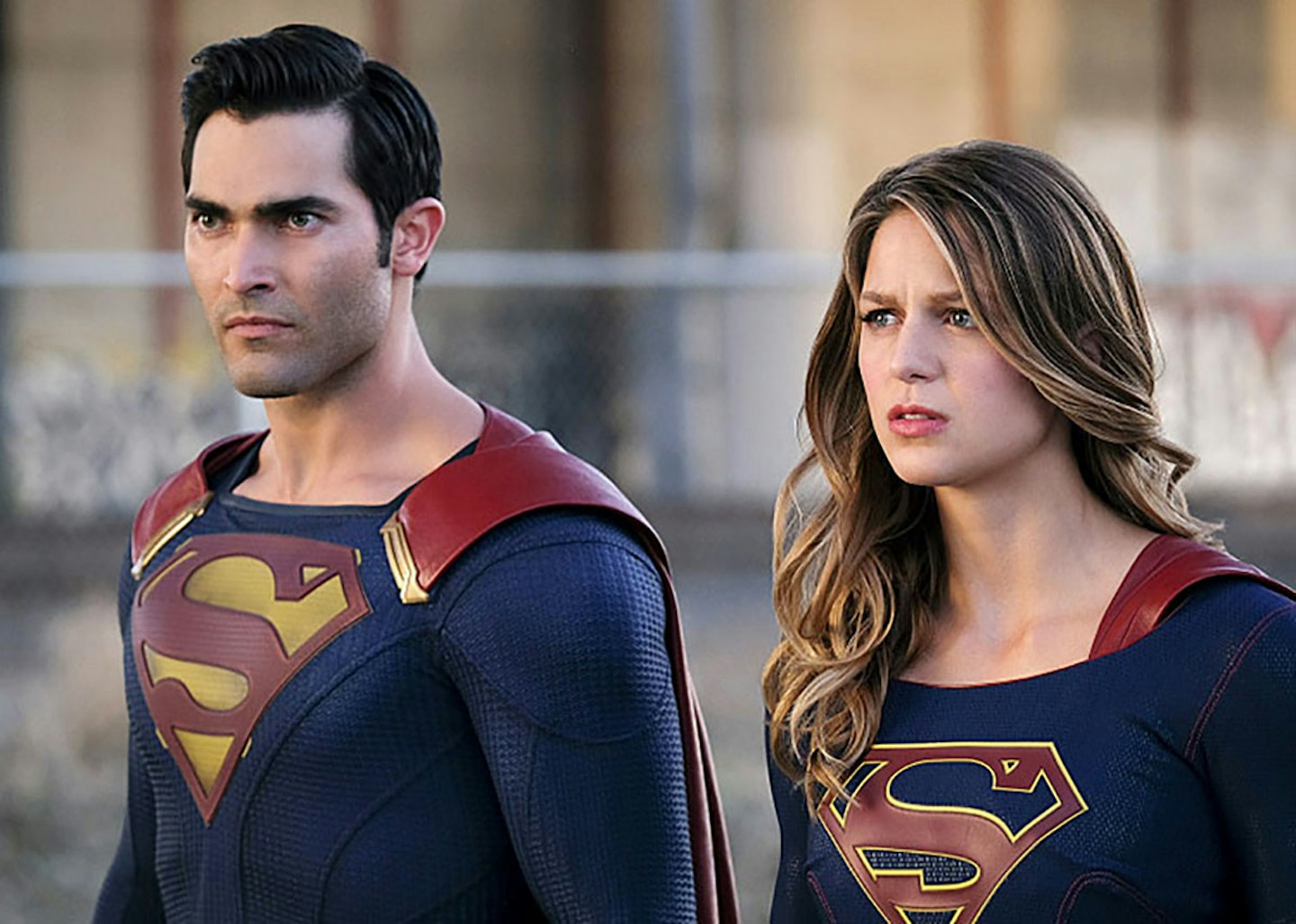
As far as Mon-El is concerned, though, how would you describe his journey this year on Supergirl?
We’re just starting episode eleven, so we're not even at the mid point yet, which is crazy to even think that. We don't have to pretend like he's not on the hero's journey, though. Will he or won't he be a superhero? He's based on a comic book character who's a superhero and I think we've had enough scenes where we've seen that, so I'm not going to try to hide that. We know where it's going. Everybody knows that it's moving towards a suit eventually. What it's going to look like, who knows? That is his story. He's finding the part of him that’s based on who he was on Daxam, and part of that is the bias that you see come out with he and Kara when they have their differences and they resent aspects of each other because of where they’re from. She actually struggles with it more than he does, which I think is a brilliant thing, to bring more of a human quality to her so that she's not just perfect.
So she's got biases, too. She works through them quickly, which is nice. He's got a lot of stuff from his background, and he's new to this planet. The rules are different. When he was there, it seemed like he was just living his life for himself, based on what he's told her so far. He hasn't been completely honest about everything. I can give you that. He has left some details out that she'll find out soon that will obviously change their dynamic. He was a bit of a dude back home. He's now here, and we’re starting to see him respond to someone who's trying to actually help him and make him better. At first he's resisting it, because he doesn't feel the same impulse to go save the world that she does. So, his story's going to become one of how does he gain that need? Where does that come from? It's something with the Clark Kent story that you don't really get, because he was already there when we met him. There's got to be a moment like the one in the pilot for Kara when she's, like, "I have to do this." He's going to have one of those moments at some point, where he is self-motivated to pursue this as a purpose.
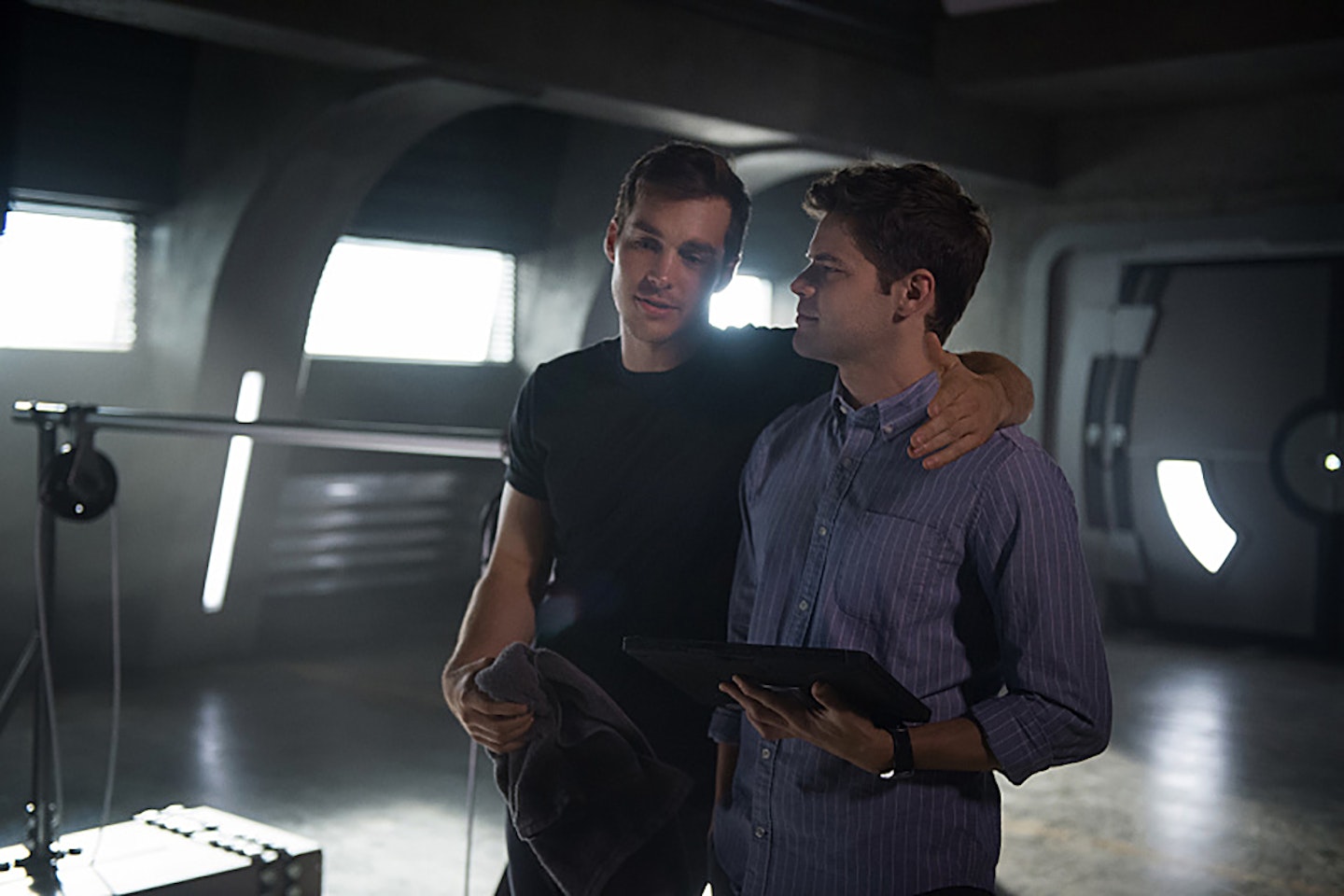
At first, everyone's trying to tell him to do it and he's like, "Yeah, I should do it. That's great." Then, eventually, it becomes, "I want to do this. Oh, I'm still screwing this part up, okay, but I want to do this, and I want to do it fully." That's his evolution, and then hopefully get him to a place where ... well, it's further down in the season. He's going to be put in a very difficult position where he has to make some massive life decisions on who he's going to be and who he wants to be. Does he want to be who he was, or does he want to become something bigger and better? That story gets pretty big as we move forward.
As an actor, it would seem that the gradual discovery of the hero within is an interesting one to play.
That's the one you want, you know? I got to do that on Containment in an, obviously, very different genre. Here, his planet's just been destroyed and he's alone, and he covers it by making jokes and hiding the fact that he's affected. He doesn't even show her that emotion. That's who this guy is. He bottles things up and hides it. He makes quippy comments and drinks, and that's how he copes. That’s like real life. It may be a superhero show with super powers and spandex, but at the end of the day they still all behave like people. That's one of my favorite parts of him, that his coping mechanism is humor and ridiculousness. When they told me what the story was, the part that we're getting to is the reason I wanted to do it. Coming in and having the first few episodes have this guy just be sort of a nightmare is the fun part. You get to play that knowing what he’s going to become eventually. You get to say, "How can I start at the opposite end of that spectrum so that I can take him on this journey?" And the opposite end is really fun. It's fun to be naïve, it's fun to be discovering Earth and screwing everything up. Obviously fans of Legion Of Superheroes or old Superman comics know what the end result of a character named Mon-El is. Other people watching will be, like, “Who is this guy? When’s he going to leave? When do we get rid of him?” I love that. I hope that people are a little bit annoyed at him at first, otherwise why I am doing this?
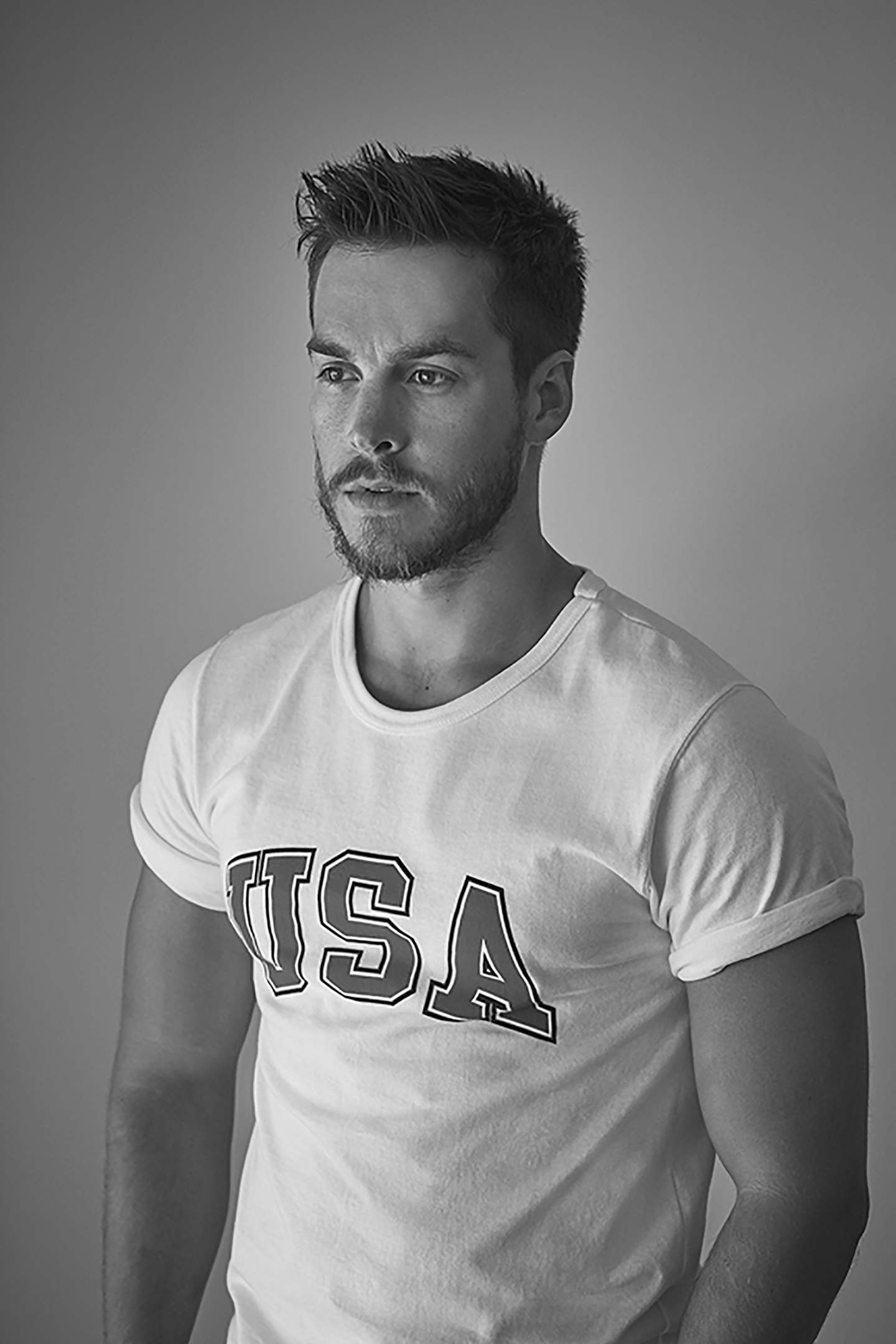
Photo by John Tsiavis
We both know he's going into costume at some point. Have you put on your tights yet?
The suit is awesome and standing next to Supergirl is going to be a really cool visual. Watching the two episodes where they were able to have both Tyler and Melissa there on camera as these two iconic characters, that was more fulfilling than I thought it would be watching it. I knew it was going to be cool, but I didn’t realize how it would elevate the show and bring it to the next level. But you can't have twenty-two episodes of both of them on her show. It's her story. But you can have that same energy with a different superhero that's figuring it out and she's mentoring. I think structurally it was quite a brilliant design to open with that energy so we work back towards that.
Spoiler or non-spoiler, if you read the comics, that’s what the character is. The character in the comic is also so serious and just earnest almost to a fault. He’s not a partier. He's always sitting in his suit in a bar, like, "What have I done? How can I save the world?" This is a different version, for sure. I'm excited for that result, obviously, because super suits are really fun and there's nothing better than having a sidekick to a hero that everybody loves.
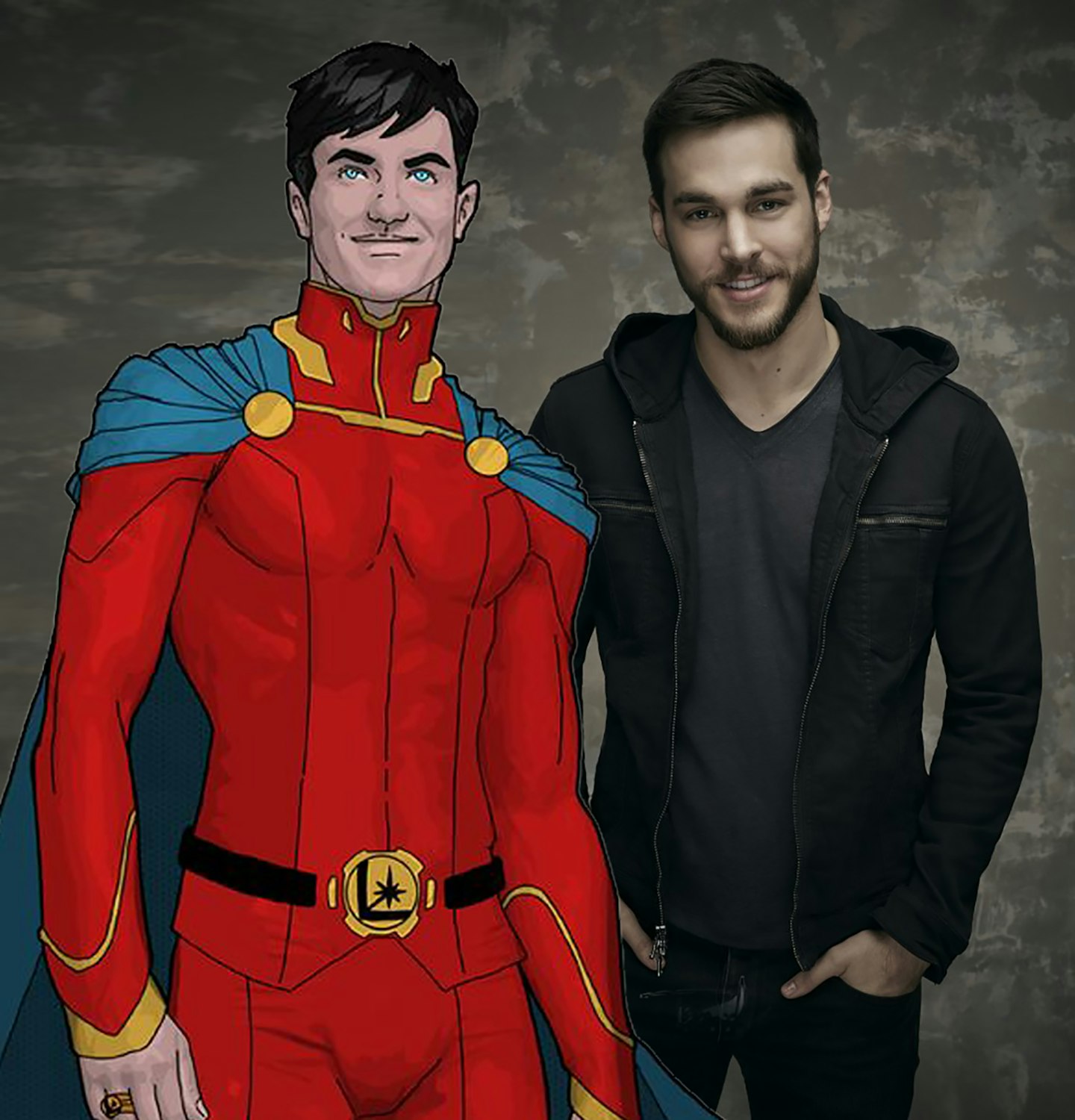
In the comics, Mon-El’s costume is the reverse of Superman’s, with a red main uniform and blue cape.
That is the comic and they're always true to the comic. They at least give a severe hat tip to the comics in terms of design, so you needn't worry about that. They stay true like they have with Flash and Arrow and Supergirl.
As goofy as it can be standing there in the costume, on the other hand there must be something very cool about being a part of this mythology.
There are a lot of moments… like even just last night. We’re shooting this big stunt sequence and Melissa Benoist and I had to run in at the same time to fluctuate with our arms and we're grunting and screaming. We looked at each other before the take and we were, like, "What are we doing?" It's just so funny. At the same time, it’s the kind of thing we all did on our trampolines when we were kids. Reading these comic books or watching these movies, you never lose that sort of child inside of yourself. There are moments where it’s like, “This is so funny,” but right behind that is, “But it's so great. I'm getting to play make believe like I did in my backyard when I was a child, and I'm getting paid for it.” At the end of the day, I feel like I couldn't ask for anything more.
Invasion: previewing The Flash, Arrow, Supergirl and Legends Of Tomorrow crossover
From The Flash to Legends Of Tomorrow: meet the Reverse-Flash
